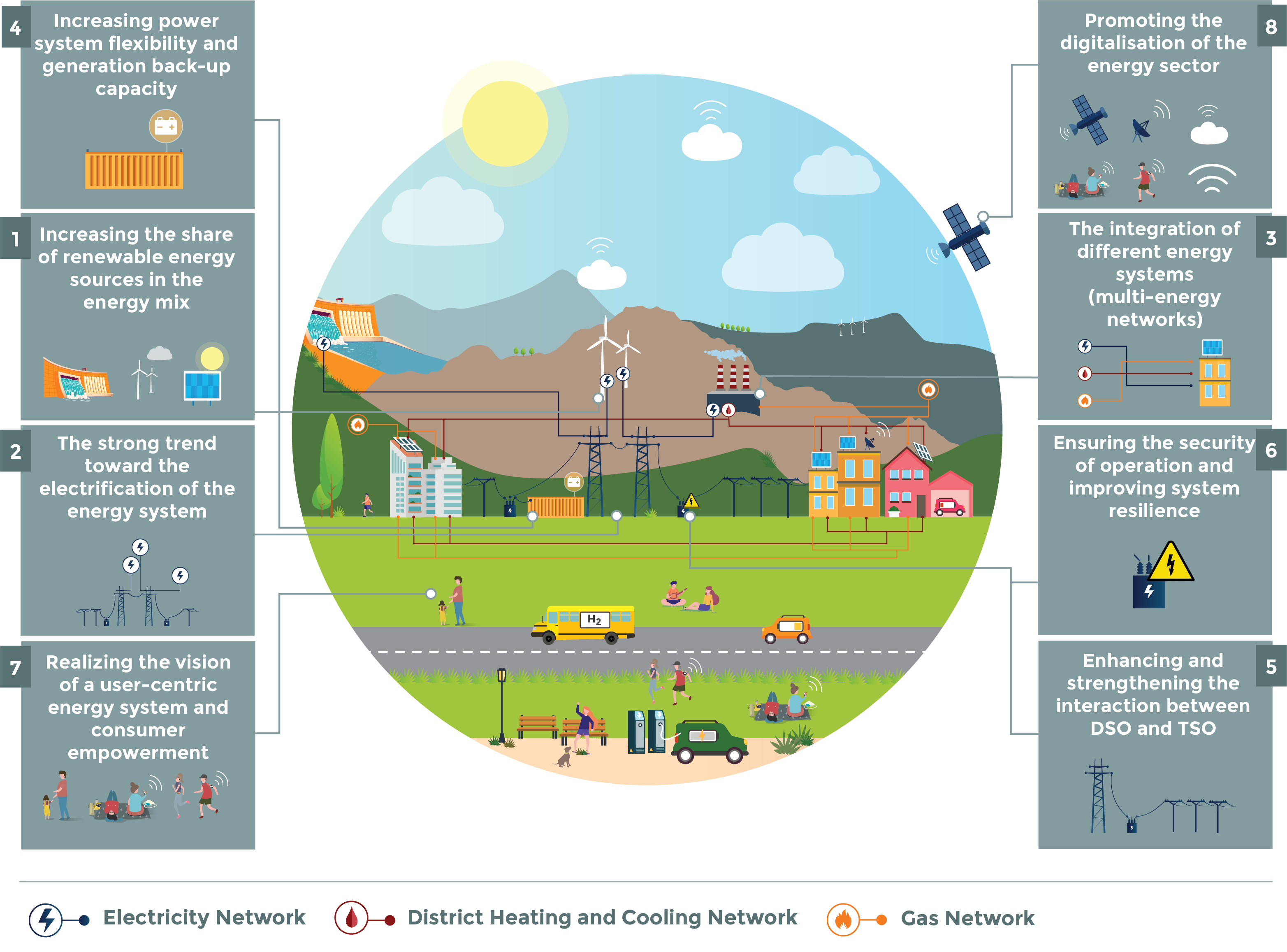“Future electrical networks ” are the focus of the new project led by INESC TEC
ATTEST - Advanced Tools Towards cost-efficient decarbonisation of future reliable Energy SysTems - is the name of the new European project that aims to develop a set of innovative tools to support the planning, maintenance and operation of future electrical networks. INESC TEC, through the Centre for Power and Energy Systems (CPES), is responsible for coordinating the project, which started in early March and will last for three years.
19th March 2020
With eyes set on the future and the challenges electrical systems will face from 2030 forwards, the ATTEST project brought together nine European partners to develop an open source “toolbox” that could be included in a platform based on Information and Communication Technologies (ICT).
In this sense, this platform is expected to improve the interaction between the Transmission System Operator (TSO) and the Distribution System Operator (DSO), thus ensuring that they can manage their networks in a coordinated and optimised way.
In addition, by accelerating the dissemination of tools to support said management process, the project will also focus on the challenges identified in Europe's climate and energy programmes.
The results will be piloted in Croatia, where the transmission and distribution networks tests will take place.
- Several countries will be invited to test and evaluate the solutions developed
The main results of the ATTEST project, namely the open source tools, will become available to the scientific community, so everyone can use them. However, the ultimate goal is having TSOs and DSOs testing and evaluating the solutions developed in the project, in order to address the future challenges that electrical systems will face.
What are those challenges? The increasing flexibility of the power system and back-up generation, the strong trend towards the electrification of the energy system, and the integration of multi-energy systems are three of the eight challenges pointed out by the consortium. The image below illustrates and contextualises them in a “futuristic” scenario.

According to André Madureira, project coordinator, "ATTEST covers a very important research area within CPES, while aiming to continue the developments in other recent projects". Here, the INESC TEC researcher is mentioning other European projects in the same field, such as the EU-SysFlex and the TDX-ASSIST.
However, what separates ATTEST from the rest? “The fact that ATTEST is a Research and Innovation Action (RIA), meaning that lower Technology Readiness Levels (TRLs) are addressed. This reinforces the much needed component of fundamental/applied research, which has been one of the unique features of INESC TEC”, acrescenta André Madureira.
Besides acting as coordinator, INESC TEC is also responsible for the development of future scenarios and test cases, as well as for the dissemination, communication and application of results. CPES researchers André Madureira, Filipe Joel Soares, Carlos Moreira, Leonel Carvalho, Micael Simões, Fernando Ribeiro, Nuno Fonseca, Henrique Teixeira, Justino Rodrigues, Tiago Abreu, Bruna Tavares, António Coelho, Joana Coelho, João Peças Lopes and Vladimiro Miranda will contribute to said actions.
“The fact that INESC TEC is the leader of a consortium, working with a set of qualified partners - some of them for the first time – contributes to a greater visibility and the added value of the expected results”, says André Madureira.
INESC TEC is the only Portuguese institution involved, alongside the University of Manchester (UK), the Luxembourg Institute of Science and Technology (Luxembourg), the Universidad Pontificia Comillas (Spain), Tech Rain SpA (Italy) and Innovation Center Nikola Tesla (INCENT), HEP - Operator Distribucijskog Sustavae and KONČAR - Inženjering za energetiku i transport (Croatia)
These nine partners (from six countries) have access to €4M funding by the EU Research and Innovation programme H2020 - agreement number 864298, until February 28, 2023.
INESC TEC researchers mentioned in this news piece are associated with INESC TEC and UP-FEUP.


